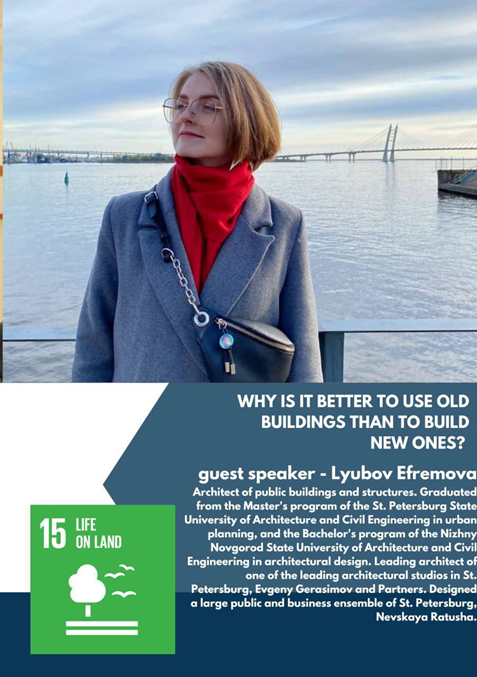PUBLIC-TALK #52 SDG 15: WHY IS IT BETTER TO USE OLD BUILDINGS THAN TO BUILD NEW ONES? – PUBLIC TALK BY LYUBOV EFREMOVA, 29 NOVEMBER 2024
|
|
Area: Architecture and Civil Engineering, Urban planning, Education, Communication In addition to her architectural practice, Ms. Efremova is an author of scholarly and popular articles focusing on the intersection of the urban environment, industrial heritage, and architectural design. She is an advocate for integrating historical preservation with modern infrastructure needs, fostering cities that respect their past while embracing future growth. |
Impact of the Event:
The talk attracted a diverse audience of students, faculty, architects, urban planners, and community members. Participants engaged in a dynamic Q&A session, discussing practical approaches to balancing modernization with heritage conservation. The event underscored the role of architects and civic institutions in shaping sustainable, culturally rich urban environments.





